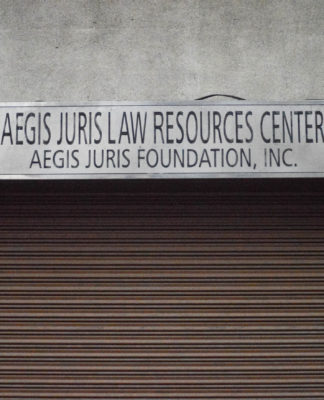PRESIDENT Macapagal-Arroyo’s Black Saturday decision to commute death sentences to life imprisonment caught the ire of different anti-crime groups even as it earned praises from pro-life forces.
Some said the President’s decision showed that her government lacked the political will in curbing heinous crimes to build a strong republic. Some even argued that she abused her discretion, making her act unconstitutional.
Without passing judgment on the legal aspects of the President’s decision, much can be said, however, about the death penalty law in the Philippines.
A recent Free Legal Assistance Group study on the 1121 death row inmates, cited in a Philippine Center for Investigative Journalism story, showed that more than half of them knew that death penalty exists but did not know that the crimes they committed were punishable by death.
As argued by pro-life groups, the presence of the death penalty is not really a deterrent to the commission of crimes, including heinous crimes as defined under Republic Act 7659, which took effect on January 1, 1994.
Reading Supreme Court decisions from the past five years would show hundreds of cases involving “common” heinous crimes, such as murder, rape with homicide or qualified rape, robbery with homicide, kidnapping for ransom, and violation of the dangerous drugs law. There are hundreds more involving homicide (the simple taking away of another person’s life with intent to kill) and simple rape.
Under the law, treason, qualified piracy, qualified bribery of parricide, infanticide, destructive arson, and plunder are also punishable by death.
It could be argued that the presence of death penalty might have averted a would-be criminal from carrying out his evil deed. However, there are no statistics that would show that a considerable number of citizens decided not commit a heinous crime because they suddenly remembered the lethal injection that await death row convicts.
The best the deterrent to crime commission, not only to heinous crimes, is the strict enforcement of penal laws. If law enforcers are able to show that the law will catch up with criminals sooner or later or that they cannot bribe or influence their way out, there would be lesser persons who would even entertain the idea of breaking the law. Undeniably, some crooks keep violating the law because they know they will not be caught.
A good example is the adherence to traffic laws, particularly to traffic lights, during the wee hours of the morning. A lot of drivers keep beating the red light because they are aware that traffic enforcers are not around to apprehend them.
The victims are also sometimes partly to blame for the proliferation of crimes because some of them decide not to pursue the criminal cases against their transgressors. Without any conviction to support their incarceration, those evildoers return to society virtually unscathed, looking for another hapless victim as they are yet to be dealt with the full force of the law.
Another area of concern is the sloppy police work that often times lead to the presence of reasonable doubt, calling for an accused’s acquittal. Supreme Court decisions are a testimony to the acquittal of countless individuals due to the disregard for the rights of the accused and the bill of rights.
A lot of policemen resort to torture, so even if they have the right man, his admissions are inadmissible in court because they were not given freely and intelligently. Instead, if law enforcers performed their jobs better, then there would have more criminals locked behind bars.
Another compelling reason working against death penalty is the possibility that new evidence will surface after conviction that could exculpate the convict from criminal liability. In the United States, a good number of death row inmates were set free when DNA evidence showed that they had absolutely nothing to do with the crimes they were almost executed for. Some of the inmates were on death row for more than 10 years.
The bottom line is once a man dies, he can no longer be resurrected. An executed convict will never rise from the grave once newly found pieces of evidence prove his innocence.
Life in prison is no bed of roses. Heinous crimes convict face reclusion perpetua or life imprisonment as the next most severe penalty. If they live the rest of their “useful” years behind bars, most of them would have wished they were dead because of the psychological torture of being separated from their family and society and the hellish state of Philippine prisons.














